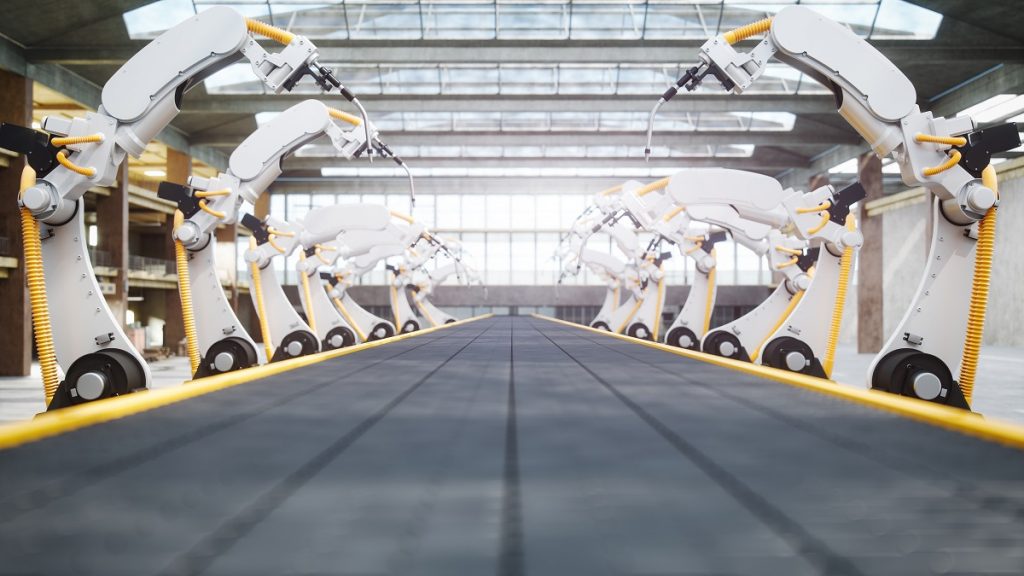by Victoria Montag, Sector Head for Industrial Automation, GAMBICA
It is said that we are now entering a fourth industrial revolution, characterised by the increase in digitalisation of processes and tasks. Like the first industrial revolution, the fourth promises to boost productivity in countries that adopt new technologies. However, this dramatic change in the way in which businesses operate will have a significant potential to disrupt the jobs we all do.
This effect was seen in the first industrial revolution. In pre-industrial Britain, 70 per cent of the workforce were employed in the primary sector (agriculture, mining and so on). However, with the advent of steam power and the mechanisation of tasks traditionally performed by hand, the make-up of the labour market shifted dramatically towards the secondary sector – the manufacture of useable goods. Naturally the industrialisation of Great Britain and then Europe had a huge impact on jobs and society. Swathes of the population moved from rural to urban areas where factories were being built. Jobs were lost, and trades were deskilled as technology enabled unskilled workers to work in industries that before had been the preserve of artisans.
The rise of automation has excited a general concern about machinery “taking jobs”, but this concern is nothing new. The luddite and machine-breaker movements during the early 19th century typified the violent reaction to the rise of mechanisation – the word “sabotage” is derived from the clogs or sabots that 19th century French mill workers threw into machines to break them.
In 1930, the economist John Maynard Keynes predicted that his grandchildren would be working 15-hour weeks. Today, in spite of a population increase and a greater proportion of women joining the workforce than in 1930, rather than working 15 hours, “discretionary overtime” is the norm.
However, just because this concern over technological unemployment isn’t new, it doesn’t mean that technology doesn’t pose a risk to the workforce.
The most common reason for adopting automation technologies in an industrial process is to ultimately make a company more productive. And it has been the dull, dirty and dangerous tasks that have been replaced. Too often people cynically equate this with a loss of jobs. Things are not as simple as that.
On the one hand, jobs are destroyed when replaced by machines. However, industries which have adopted technologies become more efficient and more productive, so they are able to do more; more companies enter the market, and entire supply chains are boosted and created around the extra-productive industry, meaning more jobs are created.
The automotive sector is a good example of this. Car-making is a heavily automated industry – a production line might only have 10 or so humans but dozens of robotic arms. And yet, the sector employs hundreds of thousands of people directly and indirectly.
The recent decisions by a number of car manufacturers to divert investment away from the UK and, even more tragically, cancel some of their production here was significant, because it is not just the jobs on these sites that are impacted by these decisions, but the jobs supported within the supply chain, which can number an order of magnitude higher.
However, just because automation can be shown to, if anything, increase employment, short-termism at the leadership level is a real threat. Those with a short-term viewpoint might be tempted to make redundancies when tasks have been replaced by automation technologies only to have to recruit for new roles or additional roles when their business grows. Our manufacturing sector needs good people – we can’t afford to lose them because of myopic cost-cutting measures. Better to redeploy either by upskilling or, as with the first industrial revolution, using these very technologies as an enabler for low-skilled workers.
There is also the more serious technological risk to UK manufacturing jobs – the failure of industries to adopt automation technologies. We are at a time of fast technological change. Companies that do not adapt run the risk of being disrupted by their competitors and new, innovative and tech-savvy market entrants. Inefficient or wasteful processes make products needlessly expensive and thus uncompetitive against the same product made using appropriate technologies. Under such conditions, companies can wither or collapse.
That is when jobs really are lost.
For more information, click here.




